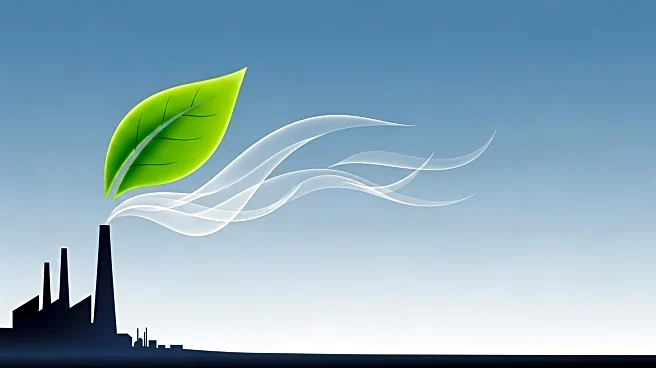What is the story about?
What's Happening?
Gujarat, India, has implemented an emissions trading scheme (ETS) for particulate matter pollution, showing significant reductions in emissions. The scheme, piloted in Surat, allows businesses to trade emission permits, providing flexibility in reducing emissions. Between 2019 and 2022, participating industrial units reduced emissions by 20-30%, outperforming non-participants. The ETS not only reduced pollution but also lowered pollution-abatement costs by 11%, increasing profits for participants. The success in Surat has led to the expansion of the program to Ahmedabad and consideration of similar schemes for other pollutants.
Why It's Important?
The success of Gujarat's ETS highlights the potential for market-based approaches to address pollution in rapidly industrializing regions. By aligning economic growth with environmental goals, the scheme offers a model for other regions facing similar challenges. The reduction in emissions and costs demonstrates the financial viability of such programs, encouraging broader adoption. This approach supports India's ambitious net-zero emissions target by 2070 and could serve as a blueprint for other developing economies seeking sustainable industrial growth.
What's Next?
Following the success in Surat, Gujarat plans to expand the ETS to other regions and pollutants, such as sulfur emissions. Other Indian states, including Maharashtra and Rajasthan, are considering similar initiatives. The continued success of these programs could lead to nationwide adoption, significantly impacting India's air quality and public health. The integration of digital infrastructure and real-time monitoring will be crucial in scaling these efforts and ensuring compliance.














